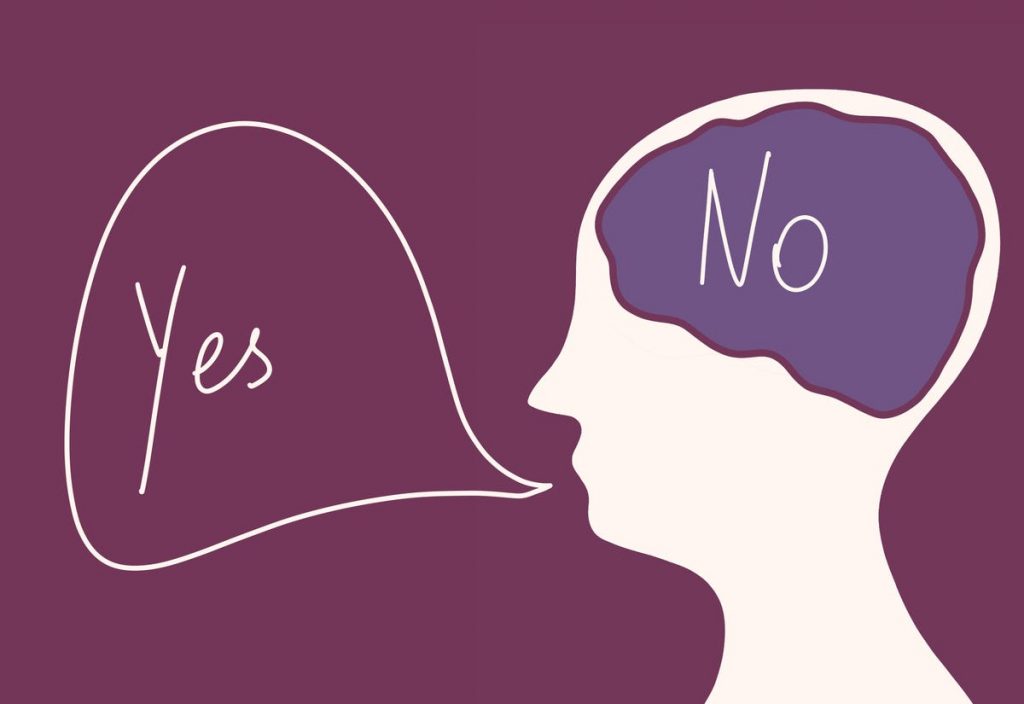Education & Career Trends: April 25, 2023
Curated by the Knowledge Team of ICS Career GPS

- Excerpts are taken from an article published on psychologytoday.com.
It’s hard to spend any amount of time online and not be ambushed by images of perfection. Social media often makes it seem like everyone is crossing the finish line while you’re stuck at the starting gate. You’re certainly not alone if you feel surrounded by a vast plain of discarded day planners, unused workout gear, and abandoned to-do lists.
“Micro-Yesses” are the smallest possible things you can say “yes” to without triggering your nervous system’s survival responses.
Your Brain Wants You Alive, Not Productive
Human brains are not designed for productivity, happiness, or goal achievement. Human brains are engineered for pattern recognition, energy conservation, and life preservation. If your brain thinks you’re in danger—for any reason—it will kick into survival gear and put you in a state of fight, flight, or freeze.
Fight, flight, and freeze are physiological realities that often get mislabeled as pathology, procrastination, or laziness. You may logically think everything is “fine,” but logic has nothing to do with the survival functions of the autonomic nervous system. Fortunately, assuming you’re in a safe enough place with access to resources and your basic needs are met, you can train your brain out of procrastination and into action.
Work With Your Physiology, Not Against It
You may think the goal of exercising 15 minutes a day is small and reasonable. You may think journaling one page a day should be easy to do.
But remember—in a head-to-head battle between your logical definition of small and your nervous system’s interpretation of small, your nervous system will win. From a physiological point of view, “small” steps can be too big, and even baby steps can be too big. If you’ve tried and failed to nail “small” goals, it’s time to harness the power of the micro-yes.
What is a Micro-Yes?
Micro-Yesses are the smallest possible things you can say “yes” to without triggering your nervous system’s survival responses. Sometimes even the thought of “tomorrow” can overwhelm an already overwhelmed system. That’s why thoughts like, “I’ll start it/stop it/listen to it/clean it/organise it tomorrow…” often fall flat. Micro-Yesses are designed to be done today. For example:
Instead of: “I’ll work out tomorrow.”
A micro-yes could be: “I’m going to get dressed today.”
The Psychological Benefits of Micro-Yesses
Not only do micro-yesses keep you physiologically in neocortical (logical and choice-based) mode, but psychologically, when you keep your word to yourself, you can avoid cognitive dissonance. Cognitive dissonance “is a term for the state of discomfort felt when two or more modes of thought contradict each other. The clashing cognitions may include ideas, beliefs, or the knowledge that one has behaved in a certain way.”
Further, researchers at the University of Zurich found “the pattern of brain activity suggests that breaking a promise triggers an emotional conflict in the promise breaker due to the suppression of an honest response.” Cognitive dissonance and promise-breaking use up the bandwidth needed for productivity and goal accomplishment.
Why bother doing something so small?
People object, “But how am I supposed to get anything done if I’m doing something that’s even smaller than a small step?” The answer? “A lot faster than if you keep trying to take too-big steps and wind up in freeze.”
Micro-Yesses may seem impotent, but they compound rapidly and create the neurochemical resources you need to do bigger things. When your nervous system is stuck in survival mode, many people attribute their inaction to laziness and then proceed to shame and berate themselves. But shame and self-flagellation are not sustainable strategies. Harsh self-talk releases stress hormones that further aggravate the very survival physiology you’re trying to shift.
Harnessing the power of a micro-yes today is an easy-to-use tool that can shift you from stuck to GO.
Dos and Don’ts
Do:
- Do remind yourself that your brain is designed for survival, not productivity.
- Do look for the smallest possible step you can say yes to today—not tomorrow.
- Do remember that shaming self-talk makes the situation worse.
Don’t:
- Don’t assume everyone is crushing their goals–you are not alone if you feel stuck.
- Don’t judge the size of your micro-yes–they’re called “micro” for a reason.
- Don’t assume there’s something wrong with you if small steps feel too big. Your nervous system gets to decide what constitutes a “small enough” step.
…
Have you checked out yesterday’s blog yet?
Career In Public Relations: Is It Right For You?
(Disclaimer: The opinions expressed in the article mentioned above are those of the author(s). They do not purport to reflect the opinions or views of ICS Career GPS or its staff.)
Like this post? For more such helpful articles, click on the button below and subscribe FREE to our blog.





2 Replies to “How Saying A “Micro-Yes” Can Help You Deal With Procrastination”